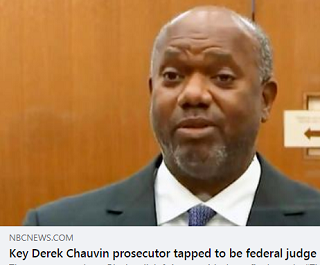Criminal Arguments Should Aim for the Obvious

Well, that’s quite a statement, considering that:
• In the 21st Century, we’re a good 500 years past the point that we believed the heart is the locus of our feeling of compassion and decency.
• We’ve left the role of the heart in our personal affairs to our small children who, to this day, enjoy “How the Grinch Stole Christmas.” Our kids and we ourselves recall how, after Mr. Grinch found his conscience, the film concludes, “The Grinch’s heart grew three sizes that day.”
• Whoever the criminally deranged character that Chauvin actually is has far more to do with his mind than his heart.
So what gives a person like me the right to comment here? I am unlicensed to prosecute a criminal case for jaywalking, let alone something that, once again, highlights that our country deals with barbarity like this on a day-to-day basis.’
Having said that, I may have gone with something a bit more direct, perhaps:
The defendant used his power as a member of law enforcement personnel to purposely torture a defenseless captive to death. There is nothing fancy to be said here, and certainly nothing about a white cop’s deliberately executing a black person in full public view. This country may be arguing over the role that race played in this case until we’ve colonized Mars, but nothing will ever change the basic facts of that horrible day.
Let’s look at the obvious.
